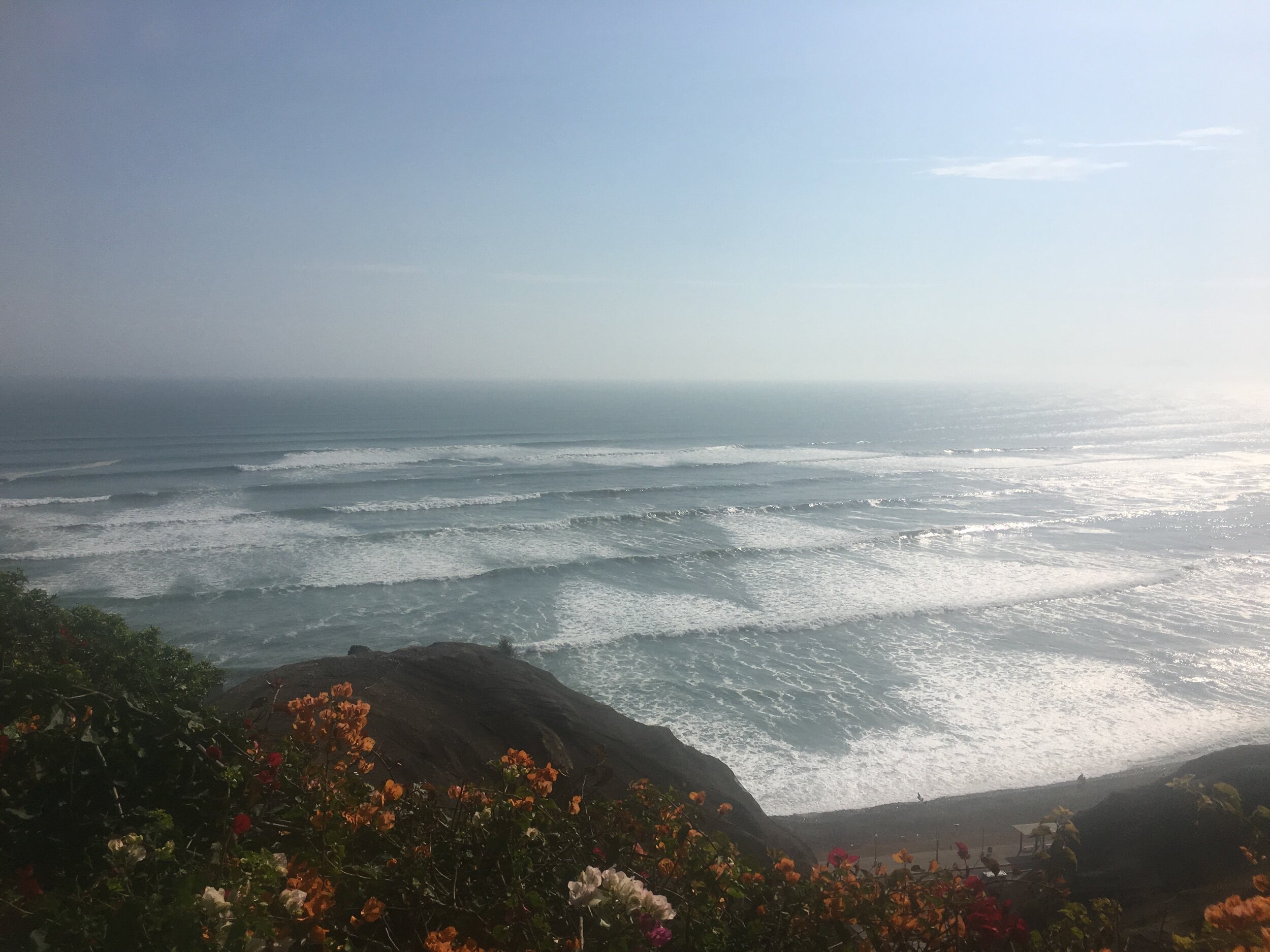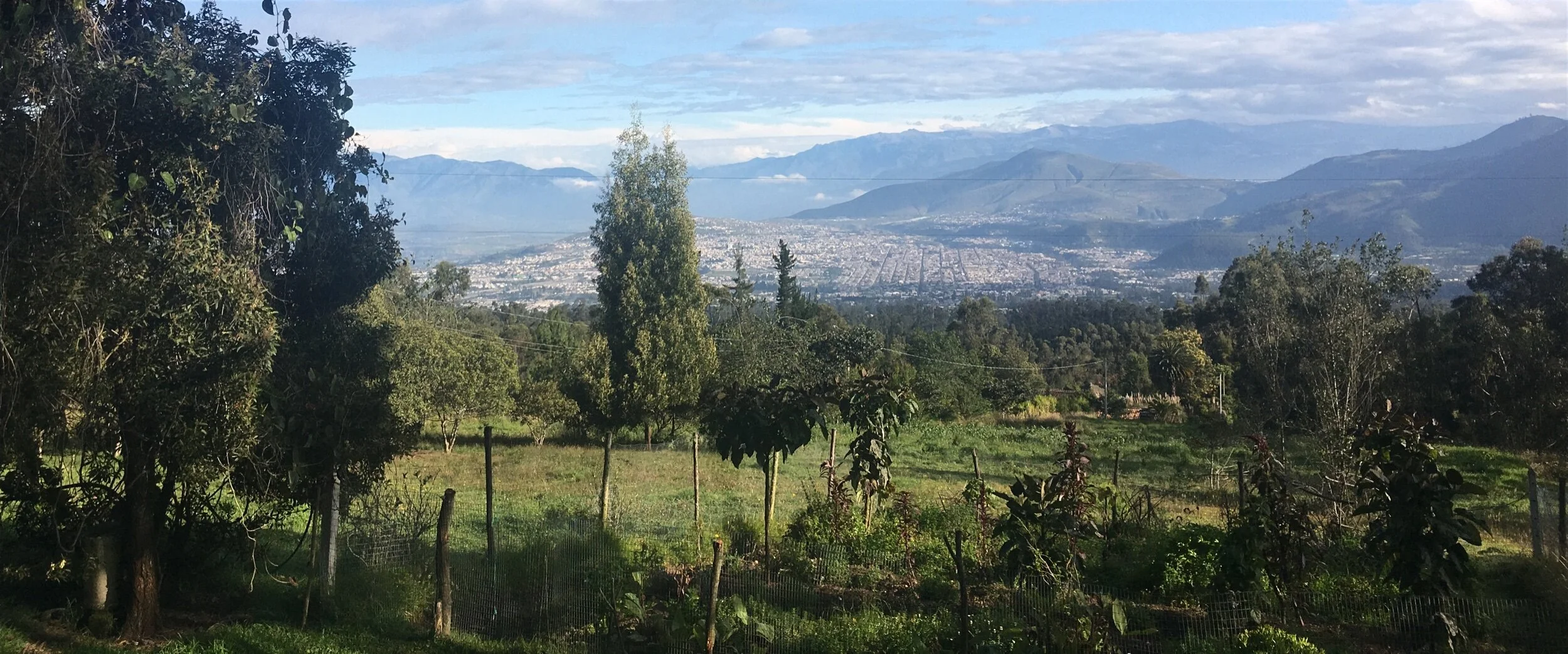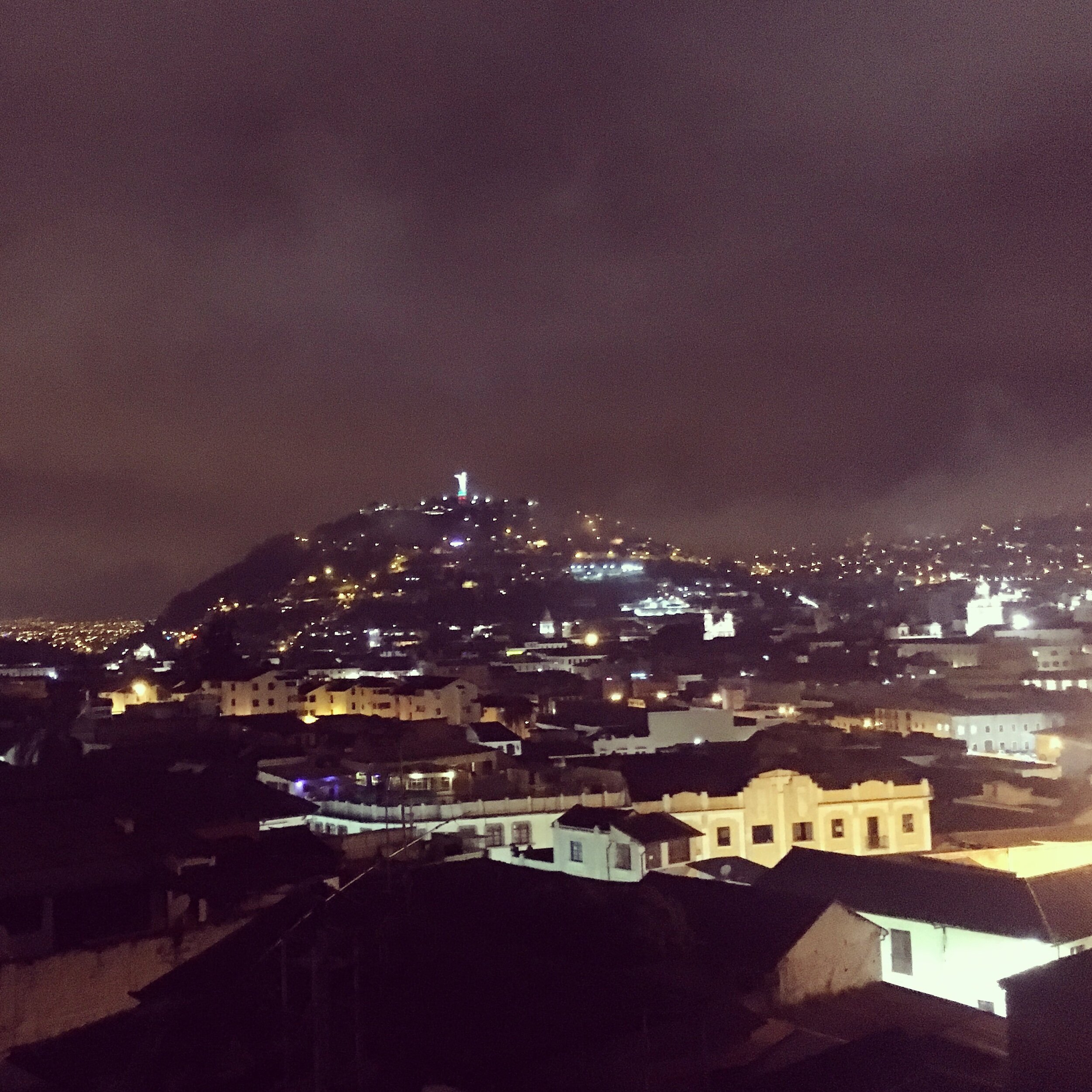
THE JOURNEY
In 2018, Nadine Altounji undertook a four month journey in Ecuador and Peru to research regional musical traditions (the journey was made possible by a research grant from the Canada Council for the Arts). Upon arriving in Ecuador, Nadine set out to scale Pichincha, an active volcano, but one wrong step on the volcano’s slope halted her ascent. Her foot was broken. Despite this seemingly derailing turn of fate, she was still lucky — a group of off-duty firefighters and rescue workers found her and, twisting rope into a sling, the six men carried her for five hours down the slope to safety.
In 2018, Nadine Altounji undertook a four month journey in Ecuador and Peru to research regional musical traditions (the journey was made possible by a research grant from the Canada Council for the Arts). Upon arriving in Ecuador, Nadine set out to scale Pichincha, an active volcano, but one wrong step on the volcano’s slope halted her ascent. Her foot was broken. Despite this seemingly derailing turn of fate, she was still lucky — a group of off-duty firefighters and rescue workers found her and, twisting rope into a sling, the six men carried her for five hours down the slope to safety.
Nadine ended up staying in Quito for a month while her foot healed, deeply moved by the kindness of strangers. Her previous plan to visit small villages to learn more about Afro Ecuadorian music was no longer practical and had to be revised. She soon found a school near Quito where she could learn to play guitar Bomba style. She also took lessons from David West, a multi-instrumentalist who had traveled around Ecuador learning different traditions and styles of music. He graciously shared his acquired knowledge with Nadine. Born in Ecuador but raised in Canada, David had returned to his birthplace to learn everything he could about his roots.
Meeting David fueled Nadine’s reflection about how our cultural roots can be felt deeply within our DNA even if we are raised in a another place and among different people. She shared this yearning, which had led her to explore and learn more about her parents’ cultural heritage and homeland. It now led her to consider these questions on a more global scale. She’d often wondered what it would have been like if her parents had never left Syria and if she’d grow up amidst war? These musings inspired her desire to create songs about digging into our roots to understand where we come from and where we stand now, how privilege changes not only our lives but also our perceptions and how it shapes us differently than hardship. Our unique personal journeys can be, at the same time, collective and universal.
After she was back on her feet, Nadine resumed her travels across Ecuador and through Peru. Along the way, she sought out and met dancers, poets, musicians and Andean community leaders. She was welcomed into the home of an Andean family, and exchanged musical knowledge with them. In Cusco, her final stop before returning to Montreal, Nadine met poet and dancer Marcia Castro Gamarra and filmmaker Johan Carrasco.
Nadine’s exchanges with Marcia about the intersecting facets of personal identity, colonialism, privilege, religious domination, women’s rights, cultural dispossession and the many possible subtle and creative forms of cultural resistance, deepened Nadine’s desire to delve into and reweave the threads of her own family history and cultural heritage. Claiming threads that were lost or frayed during the involuntary processes of migration and assimilation, she spun them into her own distinct personal identity. This feeling of dispossession, existing in a limited space between sometimes conflicting cultures, was a commonality that connected Nadine to Marcia and David. As she researched the rich diversity of musical forms in Ecuador and Peru, born from the indigenous music of the region, African rhythms brought by enslaved people as well as Spanish musical traditions brought by conquering Europeans, Nadine discovered that her journey to other lands was leading her home to herself.




















